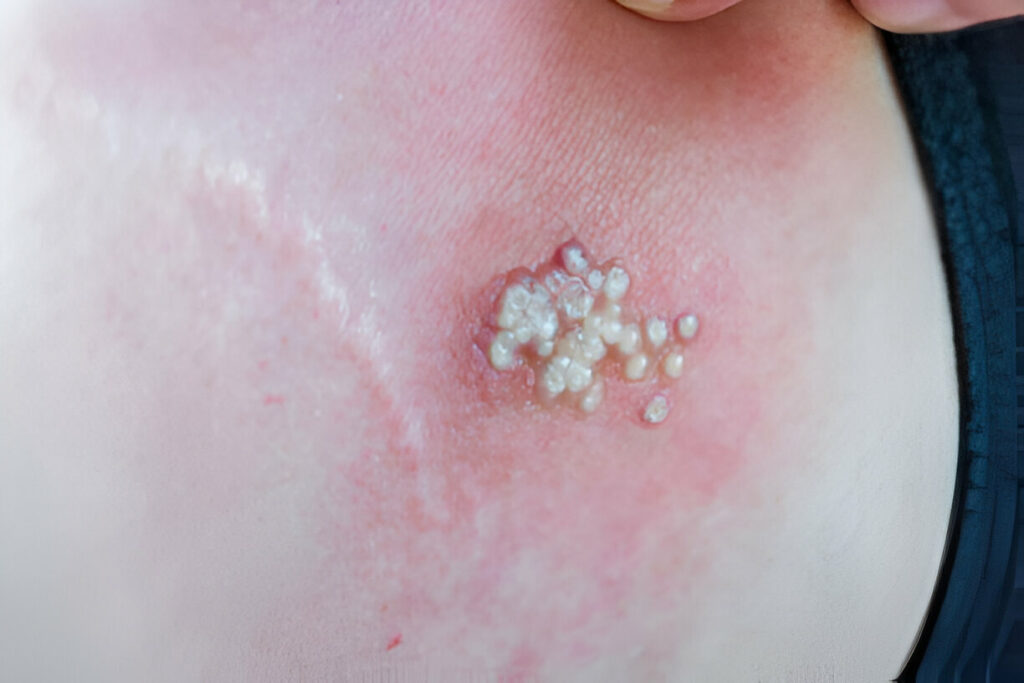108, Shangrila Arcade,
Nr. Shyamal Cross Road,
Satellite, Ahmedabad - 380015
Understanding Autoimmune Bullous Diseases: Types, Symptoms, and Treatment
Autoimmune bullous diseases are a group of rare, yet serious conditions characterized by the formation of blisters on the skin and mucous membranes. These conditions arise when the immune system mistakenly attacks healthy tissues, leading to the separation of skin layers and blister formation. At New Touch Skin Clinic, we understand the complexities of autoimmune bullous diseases and offer specialized care to manage these conditions effectively.
Types of Autoimmune Bullous Diseases
- Pemphigus Vulgaris: This autoimmune disease causes fragile blisters and sores on the skin and mucous membranes, often starting in the mouth and spreading to other areas. It can be life-threatening if not treated promptly.
- Bullous Pemphigoid: Typically affecting older adults, bullous pemphigoid manifests as large, fluid-filled blisters that develop on areas of skin that flex or stretch. Itching is a common symptom.
- Dermatitis Herpetiformis: Associated with gluten sensitivity in individuals with celiac disease, dermatitis herpetiformis results in intensely itchy, blistering skin lesions, especially on elbows, knees, back, and buttocks.
Symptoms
Symptoms of autoimmune bullous diseases may vary depending on the specific condition but often include:
- Painful blisters or lesions on the skin and mucous membranes
- Itching, burning, or stinging sensations
- Crusting and oozing of blisters
- Difficulty eating or swallowing (in oral involvement)
Diagnosis and Treatment
Diagnosing autoimmune bullous diseases involves a combination of clinical examination, biopsy of affected skin for histopathological examination, and immunofluorescence studies. Early diagnosis is crucial for effective management.
Treatment strategies aim to suppress the immune system’s abnormal response and reduce blister formation. Common treatments may include:
- Corticosteroids: Oral or topical steroids help reduce inflammation and blister formation.
- Immunosuppressants: Drugs like azathioprine or methotrexate are used to suppress the immune system.
- Biological Therapies: Monoclonal antibodies targeting specific immune responses may be prescribed in severe cases.
To know more, follow this link: https://www.webmd.com/skin-problems-and-treatments/autoimmune-blistering-disorders
Managing Autoimmune Bullous Diseases at New Touch Skin Clinic
At New Touch Skin Clinic, our dermatologists specialize in diagnosing and treating autoimmune bullous diseases with precision and care. We offer comprehensive treatment plans tailored to each patient’s needs, focusing on symptom management, disease control, and improving quality of life.
For more information or to schedule a consultation, contact New Touch Skin Clinic today. Our experienced team is dedicated to providing compassionate care and effective solutions for autoimmune bullous diseases.

For Best Treatment
Get ConsultationConsultation Fee: ₹1000/-
(Consultation fee will be waived if you avail any service or purchase any product.)


